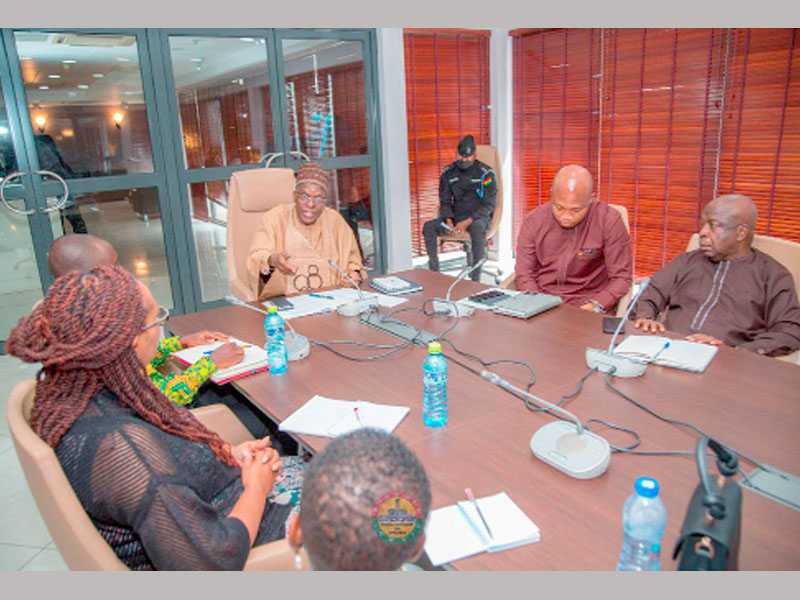The Speaker of Parliament, Alban S.K. Bagbin, has stressed the need for more inclusivity and participation of the political divide in the development process of the country.
“Basic important national policies must get the buy-in of the representatives of the people, and that buy in will in effect enrich our policies,” he stated.
Mr Bagbin made the call last Thursday when the leadership of the Africa Parliamentary Monitoring Organisations Network (APMON) paid a courtesy call on him in Parliament.
The group called on the Speaker to introduce the network and its initiatives as well as discuss ways to foster engagements with Ghana's Parliament on parliamentary openness.
Mr Bagbin said Ghana had signed on to the Open Governance Initiatives and could not go against what it had committed itself to.
That, he said, included building a more transparent, accountable and participatory governance that could restore citizens trust and promote inclusive growth.
“Humanity finally is settling in on the conviction that when there is true democracy the society thrives healthily, and in the absence of democracy the opposite pertains,” he said.
He called for closer partnership and regular dialogue between parliament and Civil Society Organisations (CSOs) to achieve the needed growth.
Ghana’s Parliament, he said, would soon introduce its revised Standing Orders to facilitate greater access and openness in the business of Parliament.
Mr Bagbin said when the new Standing Orders were approved, it would open up Committee Sittings to the media to allow for more transparency and accountability.
Vision
For his part, the Executive Director of PN Africa, Mr Samuel Nana Kwame Obeng, commended the Speaker for his vision to make Ghana’s Parliament more responsive to the needs of the citizenry.
He said major reforms needed to be introduced in the various parliaments across Africa to address the challenge of access to parliamentary information in order to aid CSOs in their work.
Mr Obeng announced the piloting of an index to rank parliaments on openness within the subregion. The pilot phase, he said, would rank 10 parliaments and national assemblies in West Africa and would involve deeper engagements with key CSOs.




